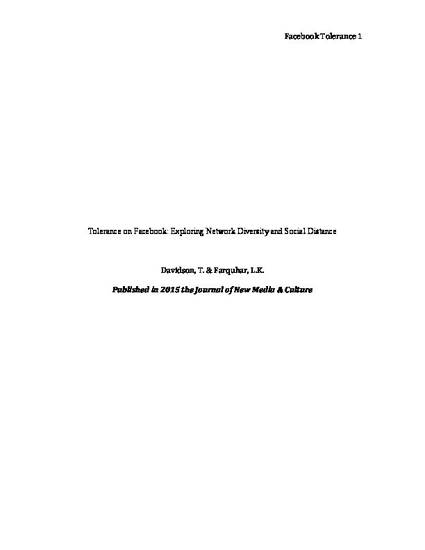
Article
Tolerance on Facebook: Exploring Network Diversity and Social Distance
NMEDIAC: Journal of New Media and Culture
(2015)
Abstract
This study examines Facebook usage, network composition, and desired social distance from groups often perceived as the “other”. Specifically, we examine attitudes toward Atheists, Muslims, and Gays. Findings indicate that social network composition (ie - network diversity, number of unique groups, number of Facebook friends) plays a significant role in participants’ desired social distance from said groups. Generally, these findings suggest that increasing diversity in a Facebook network may lead to a decrease in prejudice.
Keywords
- Facebook,
- social distance,
- social network composition,
- diversity
Disciplines
Publication Date
2015
DOI
http://ibiblio.org/nmediac/summer2015/facebook.html
Publisher Statement
This is a post-print version of an article originally published in NMEDIAC: Journal of New Media and Culture, 2015, Volume 10, Issue 1. The version of record is available through: NMEDIAC: Journal of New Media and Culture. Archived with permission from NMEDIAC: Journal of New Media and Culture, all rights reserved.
Citation Information
Davidson, T. and Lee, L.K. (2015) Tolerance on Facebook: Exploring Network Diversity and Social Distance. NMEDIAC: Journal of New Media and Culture. 10(1). Available from http://ibiblio.org/nmediac/summer2015/facebook.html.
